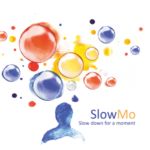
Imogen Bell blogs about a recent randomised controlled trial of the SlowMo app, which aimed to slow down thinking patterns and correct interpretation biases in people experiencing paranoia.
[read the full story...]
Imogen Bell blogs about a recent randomised controlled trial of the SlowMo app, which aimed to slow down thinking patterns and correct interpretation biases in people experiencing paranoia.
[read the full story...]
Andres Fonseca summarises a recent RCT which finds that apps for depression and anxiety in an IAPT service can be effective and cost effective.
[read the full story...]
Bethany Gill summarises a recent narrative review of mental health apps for depression and anxiety, which explores what’s needed to make sure apps are successfully implemented and used sustainably.
[read the full story...]
In her debut blog, Lindsay Dewa explores a mixed-methods survey, which found that clinicians’ attitudes to technology may stop young people from accessing mental health care.
[read the full story...]
In his debut blog, Stephen Schueller critiques a study of ‘user-adjusted’ analyses, which aims to describe the content of mental health apps that are actually reaching people.
[read the full story...]
In her debut blog, Rosa Pitts summarises the ARIES trial, which suggests it may be feasible to use a smartphone app (My Journey 3) to help prevent relapse in psychosis, although questions remain about long-term participant engagement with the app.
[read the full story...]
In his debut blog, Wouter van Ballegooijen summarises two recent systematic reviews on digital interventions for suicidal thinking, which include more or less the same research, but come to quite different conclusions.
[read the full story...]
Last week, a group of people with lived experience of mental health problems, researchers and clinicians participated in a half-day online blogging workshop. Here’s the blog we wrote together, which summarises a recent US trial of a coached mobile app platform for the treatment of depression and anxiety in primary care.
[read the full story...]
Georgie Parker reviews a qualitative analysis of Reddit comments relating to the use of MyFitnessPal and its impact on eating disorder behaviours.
[read the full story...]
In his debut blog, Tom Steare summarises a systematic review looking at drop out rates in randomised controlled trials of smartphone apps for depression, which finds that depression apps with mood monitoring and human feedback were associated with greater retention of research participants.
[read the full story...]